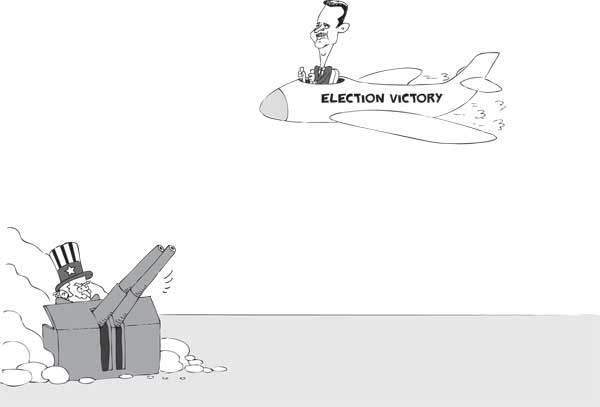Reply To:
Name - Reply Comment
Last Updated : 2024-04-16 14:43:00

.jpg) True, elections in most West Asian countries are largely a sham. The incumbent wins the election with a huge majority, usually 90 per cent of the voters favouring him. But this sham is not entirely the making of West Asian dictators. The West is also part of the game. The West does not like democracy to take hold in West Asia. This is because the West thinks it is easier to control or buy over dictators than democratically elected leaders.
True, elections in most West Asian countries are largely a sham. The incumbent wins the election with a huge majority, usually 90 per cent of the voters favouring him. But this sham is not entirely the making of West Asian dictators. The West is also part of the game. The West does not like democracy to take hold in West Asia. This is because the West thinks it is easier to control or buy over dictators than democratically elected leaders. .jpg) The people of Syria have suffered enough in the past three years for no fault of theirs. The civil war has killed more than 162,000 Syrians and left more than 9 million people displaced.
The people of Syria have suffered enough in the past three years for no fault of theirs. The civil war has killed more than 162,000 Syrians and left more than 9 million people displaced..jpg)

Add comment
Comments will be edited (grammar, spelling and slang) and authorized at the discretion of Daily Mirror online. The website also has the right not to publish selected comments.
Reply To:
Name - Reply Comment
On March 26, a couple arriving from Thailand was arrested with 88 live animal
According to villagers from Naula-Moragolla out of 105 families 80 can afford
Is the situation in Sri Lanka so grim that locals harbour hope that they coul
A recent post on social media revealed that three purple-faced langurs near t
09 Apr 2024 - 1 - 1167

10 Apr 2024
09 Apr 2024